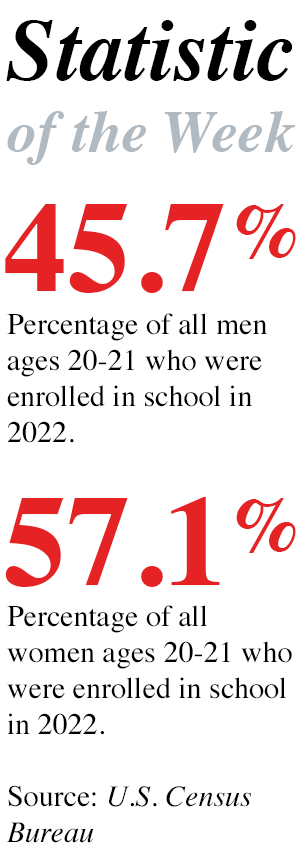In the Field of Communication, Women’s Scholarship Is Cited Less Often Than the Work of Men
Posted on Aug 18, 2021 | Comments 0
 A new study, led by researchers at the Addiction, Health, & Adolescence Lab at the Annenberg School for Communication of the University of Pennsylvania, found that men are overcited and women are undercited in the field of communication. The researchers’ findings indicate that this problem is most persistent in papers authored by men.
A new study, led by researchers at the Addiction, Health, & Adolescence Lab at the Annenberg School for Communication of the University of Pennsylvania, found that men are overcited and women are undercited in the field of communication. The researchers’ findings indicate that this problem is most persistent in papers authored by men.
The researchers analyzed authorship data from 14 communication journals from 1995 to 2018. Using name databases, they assigned “man” or “woman” to each author cited (removing names that could not be assigned with at least 70 percent probability) and then calculated the number of women authors cited in comparison with men authors cited in over 8,000 articles.
Their analysis showed that papers by men were over-cited and papers by women were under-cited relative to the citation rates you would expect if references were drawn randomly and gender was not affecting citation practices. The reference lists of papers with men as first and last authors over-cited papers with men as first and last authors by 14 percent and under-cited papers with women as first and last authors by 20 percent.
“One big takeaway from this study is that this is really a problem that men need to contend with,” said David Lydon-Staley, an assistant professor of communication at the University of Pennsylvania and a co-author of the study. “Our findings show that this citation imbalance is being mostly driven by the citation practices of men, not women.”
“Despite known limitations in their use as proxies for research quality, we often turn to citations as a way to measure the impact of someone’s research,” Dr. Lydon-Staley, added. “It matters for individual researchers if one group is being consistently under-cited relative to another group. But it also matters for the field in the sense that if people are not citing women as much as men, then we’re building the field on the work of men and not the work of women. Our field should be representative of all of the excellent research that is being undertaken, and not just that of one group.”
The study, “Gendered Citation Practices in the Field of Communication,” was published on the website of the journal Annals of the International Communications Association. It may be accessed here.
Filed Under: Research/Study








